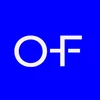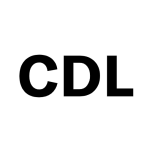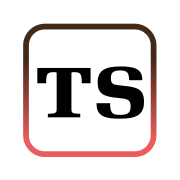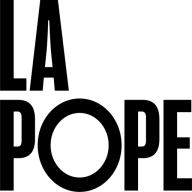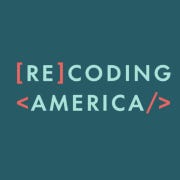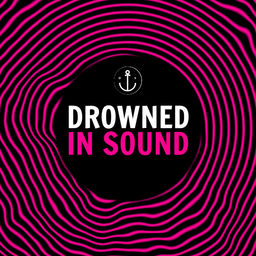This week's best things
Venice Immersive highlights, SEO AI implications, content maintenance, knowledge systems, organising structures, bottleneck leaders, project vs product funding, disintermediation, music discovery, fortune tellers, and more.

Hello hello, I am back from holiday.
Südtirol is very nice. Verona is perfect for a weekend (and Amarone Risotto is delicious), Milano was...fine. Italian and Austrian trains are (still) great and time off is nice.
Before that we spent some time in Edinburgh, doing a bunch of user research with the nice people at Edinburgh International Festival (I wrote a bit about that work here).
I hope you're having a nice end-of-summer time.
Here are some good things.
Oh, also - I'll be in London in early October if you're around and want to grab a coffee (or have show/exhibition/film recommendations for me): [email protected].
After Venice Immersive 2025
Venice hosts an annual immersive festival. Sam King shares her highlights.
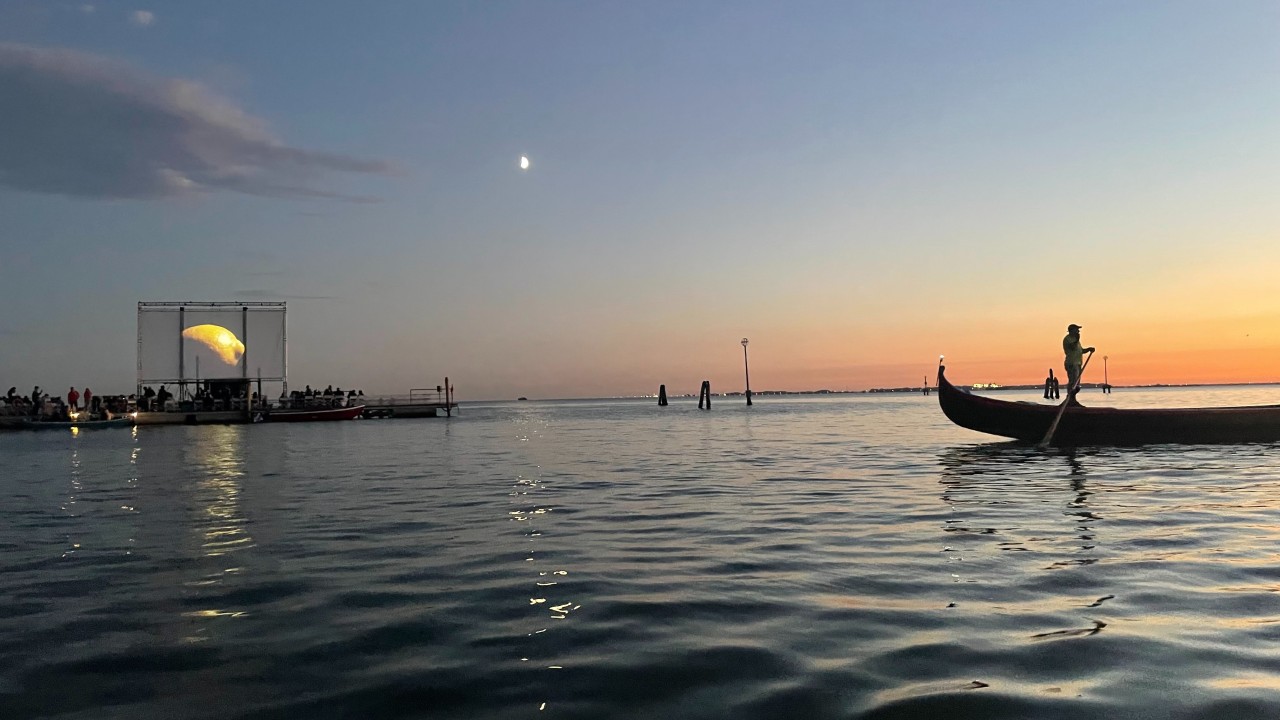
The impact of AI Overviews in the cultural sector
The folks at One Further have done some work to try and understand the impact to cultural web traffic of Google's AI Overviews.
Their report has a bunch of useful findings such as; informational content (visitor info, guides, etc) taking a bigger hit than transactional pages (e.g. shows, exhibitions), and "80% of the organisations we looked at saw a decrease in traffic from Google in the first half of 2025".
Chris Unitt also said "one thing came through pretty clearly. Organisations with weaker SEO foundations and an unfocused content strategy are much more likely to be knocked around by these sorts of changes."
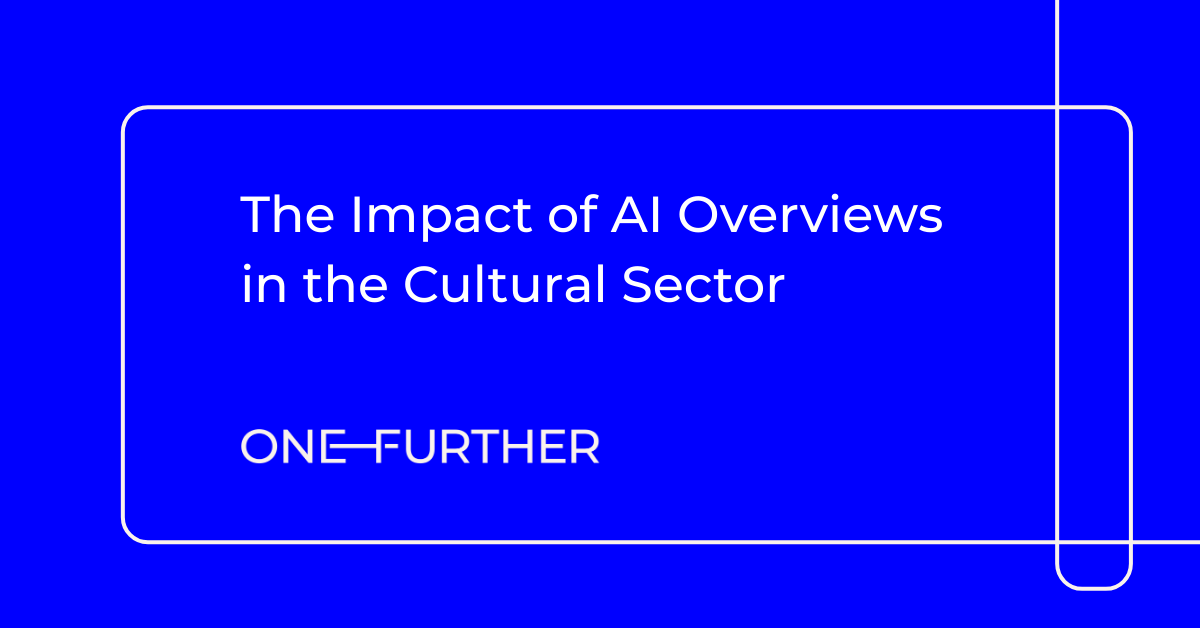
Managing backlogs of web content: where to start
Maintaining published web content is one of those boring but necessary jobs that few organisations I've ever worked with seem to have had an actual plan for.
So, here's a useful post from the folks at Content Design London, as Sarah Winters said: "most organisations create more content than they can manage. But publishing content without a plan to review and maintain it leads to problems for users and the organisation. Content maintenance leads to improved search and brand reputation – old information that is not updated can be inaccurate."
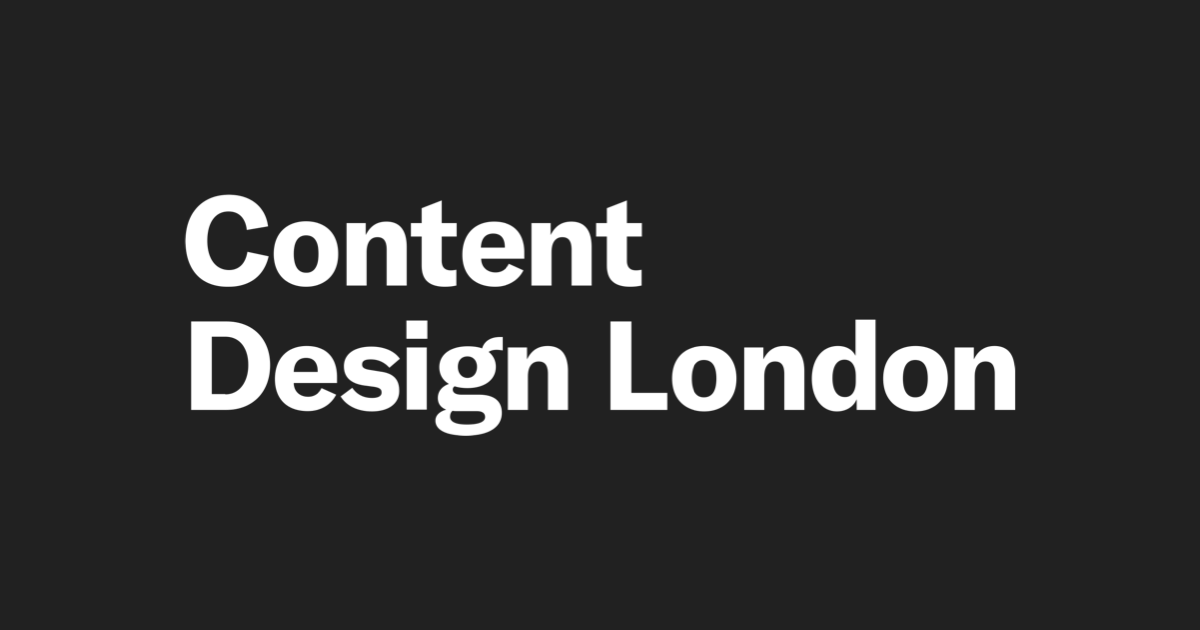
The under-explored potential of shared infrastructure and expertise
Some thoughts (from me).
"Many cultural orgs build near-identical digital systems from scratch which are often costly, fragile, and rarely better than ‘just good enough’. What if we explored shared infrastructure for the basics, freeing up time and budget to focus on what really matters?"
The response to this piece has been really interesting - people have been in touch with a bunch of stories of spectacular failures, as well as really exciting success.

Death of a knowledge system
A really interesting piece from Nicholas Michalsen about the impact of AI on knowledge workers.
It looks at some of the things that Tash Willcocks and I discussed in our podcast chat, particularly the increasing need for what Tash called 'intellectual humility'.
"Many of us in the cognitive class, consultants, analysts, strategists, synthesizers, aren’t just skilled in propositional knowledge. We are, in a very real sense, addicted to it. Every clear model, every fresh insight, every clever articulation, every new piece of information delivers a dopamine hit. Our motivational systems are wired to chase the next fix, and the world around us cheers us on.
Think about it: everything in this culture rewards the performance of certainty. It’s how we manage fear. How we avoid vulnerability. How we earn social value. So what happens when a billion people addicted to propositional knowledge get cut off from their stash?"
It also talks powerfully about other 'ways of knowing':
1. Procedural Knowledge – Knowing how
This is the intelligence of practice. It lives in the body, not the brain. You don’t read your way into it, you repeat, refine, embody. Examples:
- A carpenter running their fingers across a beam and feeling if it’s true
- A startup CTO who can smell technical debt before it breaks anything
- A trader whose body tightens before a market turn, no data yet, just years of somatic pattern recognition
- A regenerative farmer adjusting planting patterns not based on soil tests, but on the subtle feel of ground moisture under bare feet
- An artisan potter knowing, without measurement, when clay is ready to throw
2. Perspectival Knowledge – Knowing from within
This is the intelligence of felt context. The ability to take on a point of view, to know what it’s like to be inside a system, a role, a body. Examples:
- A founder sensing that a pitch isn’t landing, not because of words, but the shift in collective attention
- A family office steward feeling when a succession plan sounds right but feels wrong
- A designer walking through a city and seeing not just objects, but flows, of mood, movement, and meaning
- An elder speaking through parable because they know transformation isn’t delivered, it’s evoked
3. Participatory Knowledge – Knowing through relationship
This is relational and emergent. It arises in contact with others, the land, the invisible. It’s the least legible to modern systems, but the most crucial for reweaving meaning. Examples:
- A co-founding team that coalesces into clarity, not through analytics, but through collective attunement
- A land investor realizing the due diligence was incomplete until they sat quietly under the trees and listened
- A ceremonial circle where a decision arises in the silence after everyone speaks, not from debate, but from coherence
These ways of knowing aren’t “alternative” because they’re marginal. They’re alternative because we didn’t place any societal value on them. They are irreducible, relational, and embodied. And they cannot be outsourced to algorithms. They point the way toward a post-propositional culture, one that values wisdom over cleverness, coherence over control.
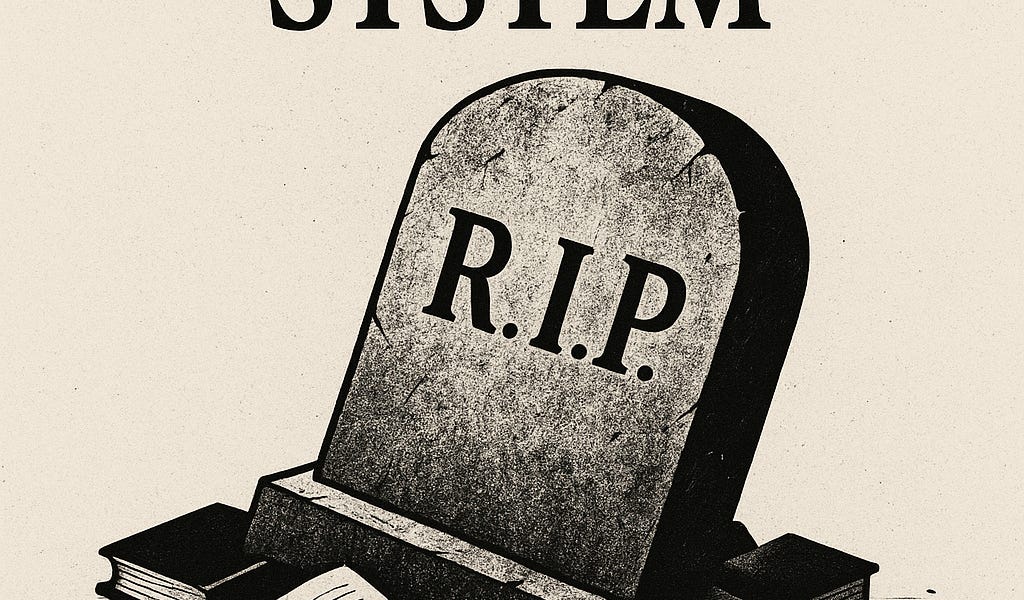
Disintermediation is a wake-up call for our sector
A piece from Zoe Amar on the impact of AI tooling (AI Overviews, generative AI products like ChatGPT) in disintermediation.
"In a charity context, disintermediation is when AI cuts charities out of the journey between people seeking help and the information they need, disrupting how people get advice, interact with services and donate.
For example, this might mean that a cancer patient gets advice about treatment from the AI summaries generated by search engines, which may include irrelevant health advice from other countries or unverified information sourced from forums such as Reddit or Quora.
This cancer patient might even seek advice directly from AI tools such as ChatGPT (where they could receive inaccurate information), rather than going to a cancer charity’s website.
The impact of this is huge.
Bryony Ashcroft, head of web content at the NSPCC, says: “Disintermediation is already impacting the charity sector with people engaging with causes through search, social platforms, messaging apps and AI tools.
“This shift reduces direct traffic to charity websites and changes how supporters discover and interact with these organisations.”"
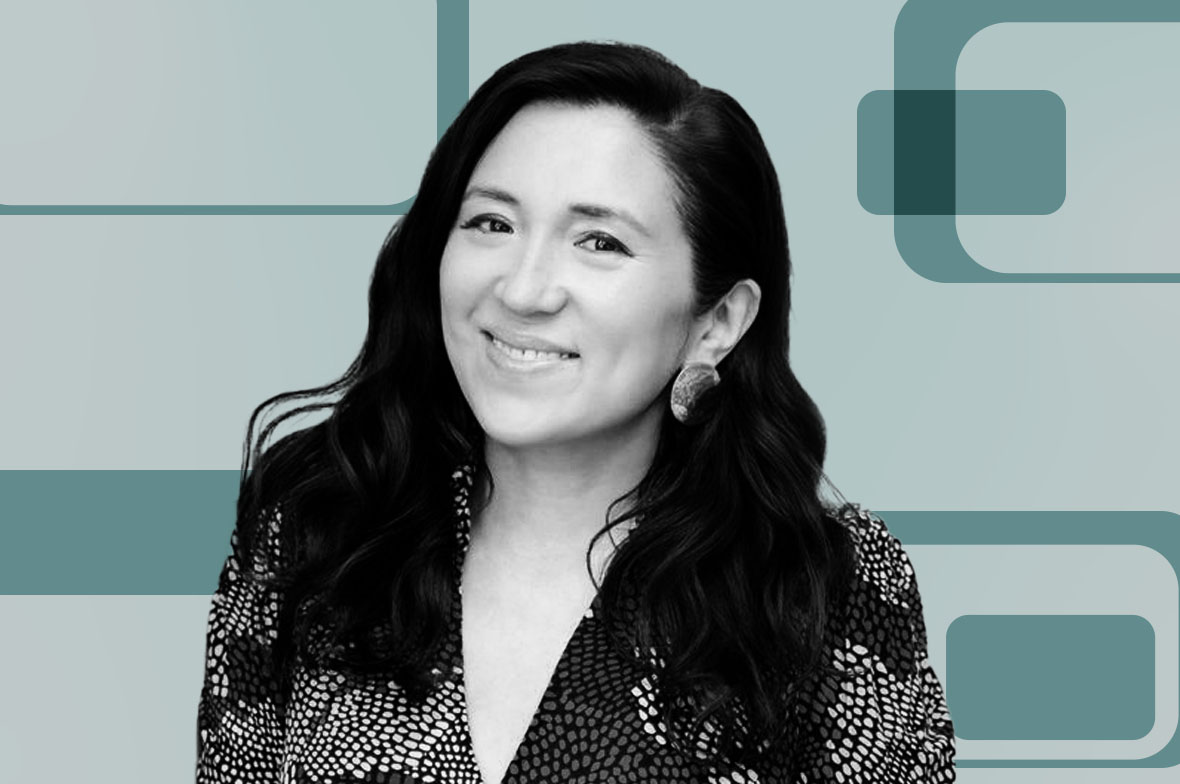
Organising structures for content teams: a guide
The very smart and lovely Lauren Pope is doing some work on how content teams are structured.
"An organising structure is how an institution’s content activities are directed and coordinated. It provides the framework for how work is divided, how different departments or teams interact, and how decisions are made. The right structure can play a big role in helping an organisation achieve its goals through its content.
In my strategic consultancy work, I come across a lot of teams that are struggling because they don’t have a clear organising structure, or they’re using an approach that’s not the right match.
Not all content teams have control over their organising structure. Sometimes the overall structure of the organisation will dictate the structure the content team will take. But some teams can set their own structure, or have enough influence to change this for the better."
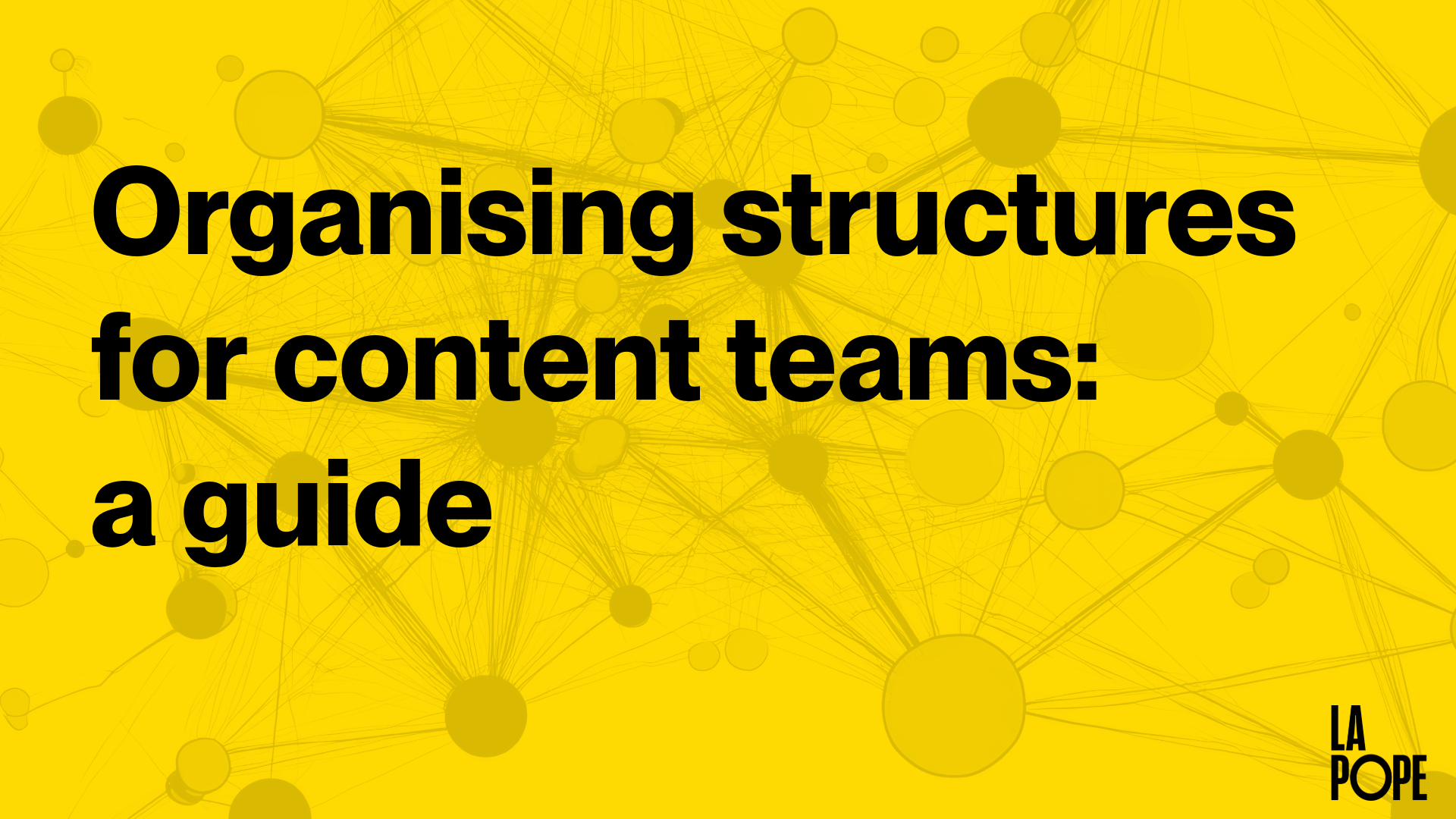
Spoiler: you might be the bottleneck
This was a good read (I recognised a bunch of stuff having worked in businesses where the founder was still very much involved) and is also something I see a lot in 'personality-led companies' (those with a very charasmatic and forceful artistic director, for example) or those where the leadership has been in place for years (I once worked somewhere where the leadership team was mostly unchanged after 25 years).
But I also think many of these observations are true of all of us, we have more of an affect on culture, dynamics, and ways of working than we may think, or realise.
"But here’s the thing we see again and again with founder-led businesses: beneath the delivery issues, team dynamics, and slow decisions you often find something else.
You find you.
Not in a blame-y, “this is all your fault” kind of way, but in a gently uncomfortable, “oh… this might be mine” kind of way.
Because in founder-led businesses, culture starts with you. Behaviours ripple down. The way you lead, communicate, cope, avoid, react… none of it stays in your head. It builds the atmosphere everyone else is breathing.
Being a founder isn’t just about building a business. It’s about building yourself into it. Long before you scale anything, your own patterns are already baked into the foundations.
Your beliefs. Your biases. Your coping strategies. Your hunger for validation. Your avoidance of conflict. Your relationship with control, trust, and success.
These shape how you hire, how you lead, how you make decisions. Not because you’re doing it wrong, but because you’re human."
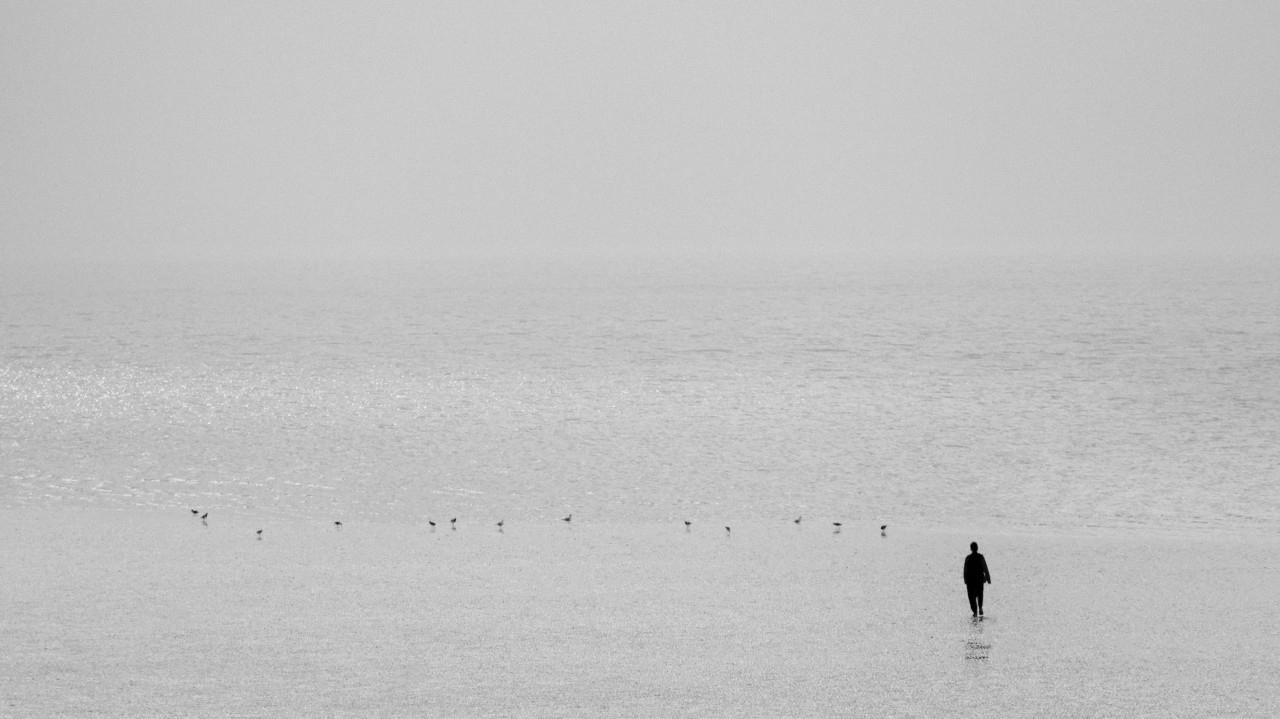
Join the community
Why not join the new pilot community space I've set up for people doing digital work in the cultural sector.
It's all free for now - I'm covering all the costs until the end of the year, and if it seems like it's worth continuing by the end of the year then paid tiers will launch in January 2026.
- Individual for freelancers/independents and people joining in a personal capacity
- Organisation for people working inside cultural organisations (museums, theatres, galleries, festivals, etc.)
- Supplier for people working at agencies, studios, platforms, or product/service suppliers to the sector
Project vs Product funding
I came across this piece from Jennifer Pahlka via Neil Williams (thanks Neil!) which is a good explanation of the value of a fundamental shift in how digital work is funded.
"We procure and fund software as if it were static, and thus make it both worse and more expensive. This is best illustrated through a series of graphs, each one entirely fictional but representative of two fundamentally different approaches to funding software.
Government typically follows a “project” model. The following graph shows the number of staff who work on an IT project at its outset, as requirements are being developed, a request for proposal written, bids from contractors sourced and evaluated, and a winner chosen. The contractor, once hired, brings a team to develop the software based on the RFP, and the staffing levels (counting both internal and contracting staff) shoot up. There is a development period, followed by a short period of “user acceptance testing,” and then the project falls into “operations and maintenance,” (or O&M), which is generally a different color of money than the development funds. (This is a huge problem worthy of a separate discussion, but see here for a start.)

Contrast this with a typical “product” model, in which, instead of a requirements gathering phase up front, a small team, often but not always internal to government, conducts what are called discovery sprints to better understand the problems the software is supposed to address. If some parts of the proposed solution are riskier than others (for instance, it’s not clear whether a data integration will work well), they find ways to test those problems first, before an entire software solution has been built. They may develop prototypes to help question their assumptions, and they engage with users from the beginning. Product teams almost always leverage contractors, but the contractors are there to complement a core internal team which holds the product vision and provides clear direction to vendors. Staff is added slowly over time as the team learns what they need, but doesn’t dramatically ramp down once a first or even second version is shipped. As my colleague Dave Guarino quips, “Google didn’t lay everyone off after they put up search.” Indeed, they invested more."

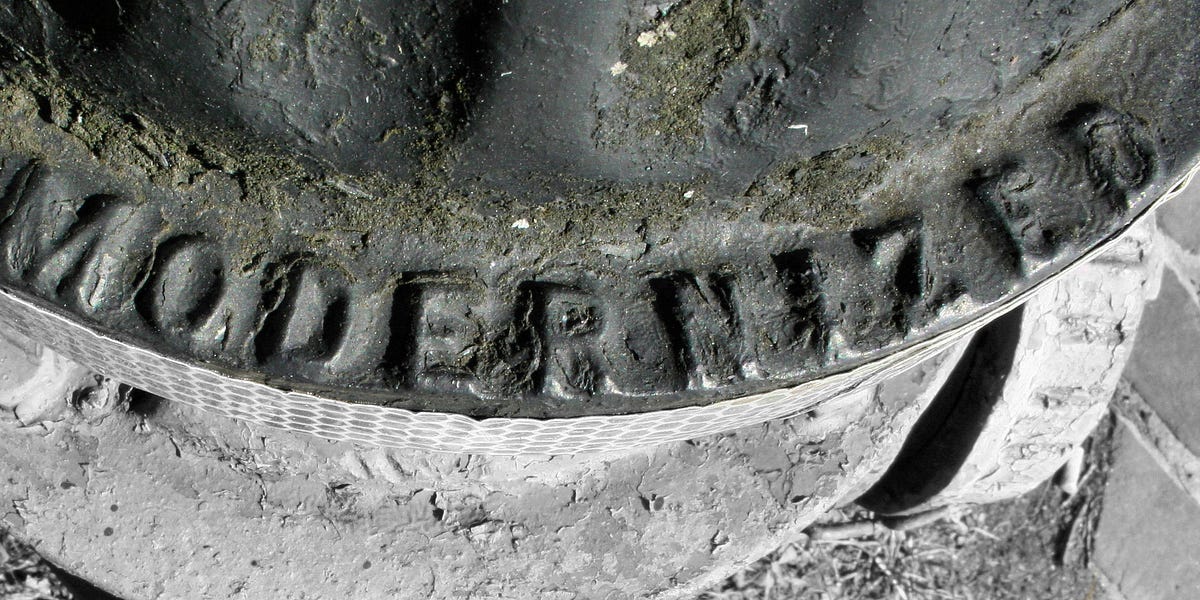
Music discovery is broken, can it be fixed?
I was surprised (and pleased) to see Drowned in Sound still exists (I definitely have a memory of its untimely demise, but maybe I imagined that).
Anyway, I enjoyed this piece on music discovery, not least because it made me think about how much of a role MTV2, the All Tomorrow's Parties lineup, and Kerrang (the magazine) played in my music discovery when I was a teenager. Also shout out to the couple of kids in my year at school who had cooler older siblings with big CD collections.
"Since DiS first started back in October 2000, the ways we have discovered new acts, browsed new releases, and explored music's rich history has changed both a lot and not that much.
How those life-changing acts entered our world and why some acts had lengthy careers is perhaps less discussed in our recent history than the who. It's been really interesting to dip back into the career-changing moments for different artists and it's been fascinating to be reminded of things that have faded from my memory.
I'm talking about the impactful destinations artists were trampling over themselves to be featured on. I'm thinking things like Gonzo on MTV2, MTV VMAs, MySpace's homepage (and Coca-Cola's very similar project), The OC, NME's Radar, SBTV, MP3 blogs, Tumblr, Black Cab Sessions, Careless Talk Costs Lives, All Tomorrow's Parties Weekenders, RDIO, Xfm, iTunes Festival, Queens of Noize, Mary Anne Hobbs' Dubstep Warz, Radio 1's In New Music We Trust, New Music Friday, "Twitter", etc and many more that emerged, were highly impactful, and then slowly faded away.
Of course, not all of the big players are relics, many still do what they've always done. Others disappeared (completely...). Entire ecosystems of forums and fawning media felt like they became extinct and there was barely an obit."
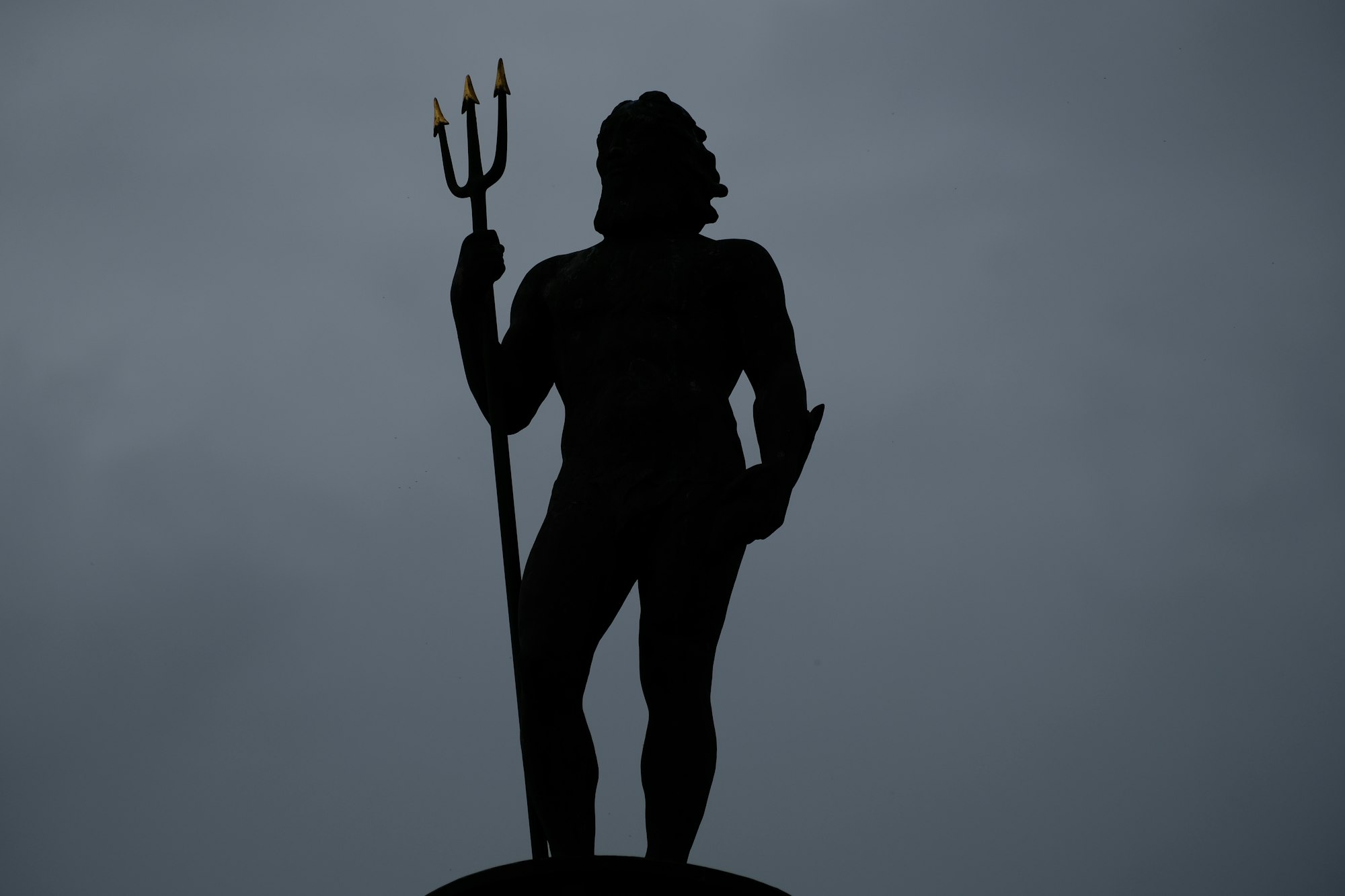
Otter Accused of Recording Meetings Without Consent to Train Its Tech
Those AI notetakers that join most remote meetings? They might be a problem.
"Popular AI transcription tool Otter has been hit by a lawsuit that alleges it “recorded, accessed, read, learned, and utilized” the contents of people's conversations without consent to train its machine learning technology."
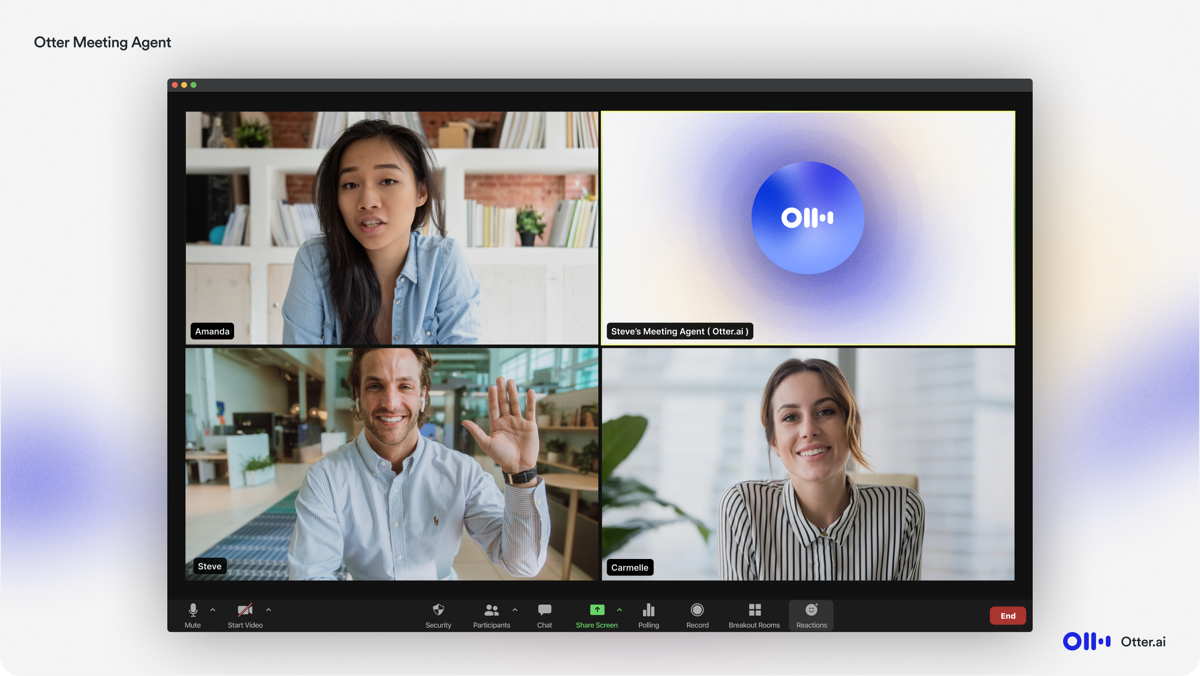
Tape Bowing Ensemble
I came across this video, I don't really know how to describe it but I love this sort of surprising mix of traditional and more modern ways of making music.
I guess it's maybe like Kraftwerk combined with a Japanese instrument called a jigakkyu...
French flock to fortune tellers but regulation may be on the cards
France is france-ing "The National Institute of Divinatory Arts claims three quarters of France’s 100,000 clairvoyants are incompetent and dishonest"
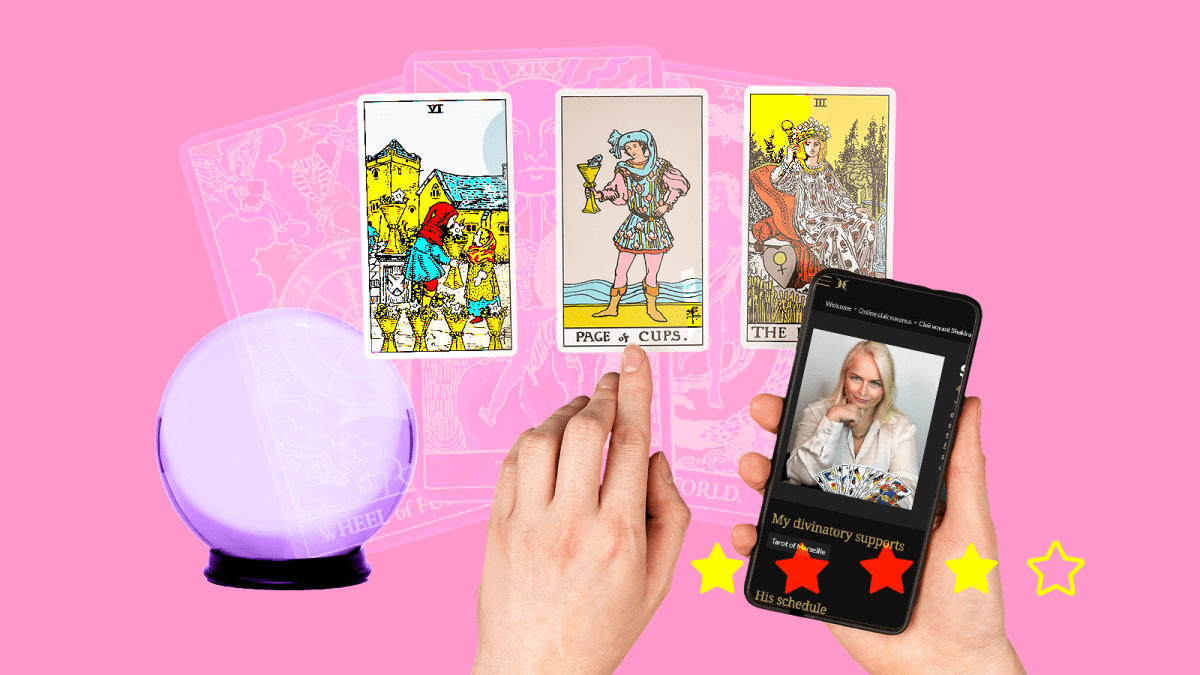
Last time's best things
Here are the couple of most popular links from the last edition:
- Nicola Triscott on FACT's purpose-focused restructure
- Nubart's report "The Reality Check: How Museum Audio Guide Apps Are Failing to Reach Visitors"
This week's consumption
I read a lot of books on holiday, including There Are Rivers in the Sky by Elif Shafak (which was absolutely excellent, maybe in my top 2 for the year), A Whole Life by Robert Seethaler, Wild by Cheryl Strayed, and Early Morning Riser by Katherine Heiny.
We saw an opera in a Roman arena, there was a lot going on - at one point there were over 200 people, 3 horses and 2 donkeys on stage...it was...a lot (too much tbh).
We had a work trip to Edinburgh, wherein I went to the very excellent Assai Records (thanks Leon for the recommendation).
See you next week
Thanks for reading all the way to the end, please enjoy this very interactive website (it's quite 'sound-y' so probably only go here if you have headphones/are prepared for music to start immediately).
To finish, a quick reminder that I'm a consultant who helps cultural organisations do better digital work.
Here are some workshops I offer.
I'm also currently working with organisations on things involving:
- user research to inform digital investment priorities,
- technical strategy,
- leadership development,
- 'critical friend' advice,
- project governance,
- mentoring,
- digital strategy,
- and digital readiness.
If it sounds like I could be useful, then let's chat.

